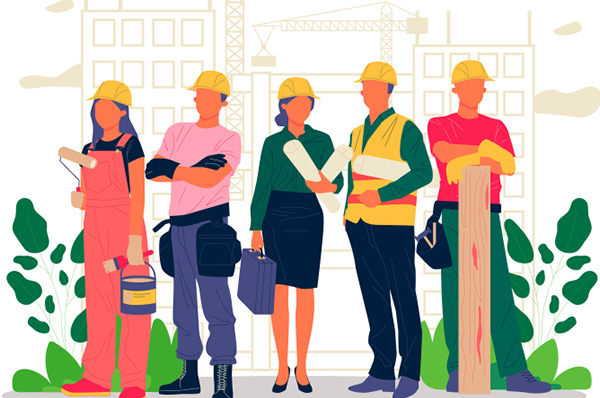BRANZ: Future brings changes to work
By Orin Lockyer and Dr Casimir MacGregor, BRANZ
Aotearoa New Zealand's shift to a net-zero carbon economy will place big demands on our building and construction industry to deliver low-carbon buildings. A BRANZ project is researching how best to assist the industry to make the transition.
The Climate Change Commission’s recent report Ināia tonu nei: A low emissions future for Aotearoa states, ‘current government policies do not put Aotearoa on track to meet the Commission’s recommended emissions budgets or the 2050 targets.’
The report also outlines how occupations ‘will inevitably change as Aotearoa moves towards a low emissions society. Many workers will need to learn new skills to continue practising their profession in a low emissions environment.’
Workforce will need new skills
Like other sectors, the construction sector will experience change. Responding to climate change will require our workforce to acquire new skills, competencies and expertise to meet our emissions targets.
Despite government moves, the Construction Sector Accord has only recently focused attention towards sustainability issues and the transition to a zero-carbon economy. The 2018 Construction Skills Action Plan also omits any mention of climate change, as do submissions by the building and construction industry to the Productivity Commission on the Technological change and future of work review.
These omissions indicate research is needed to understand how the industry can facilitate the change inherent in addressing workplace skills needed in relation to climate change and the transition to a zero-carbon built environment.
EU experience highlights barriers
Recent research by the European Commission shows the construction sector is undergoing massive change as it aims to reduce the carbon footprint of buildings. This was expected to generate continued growth in construction jobs and in the occupational scope of existing jobs and create new, more technical jobs, such as installation of renewable energy systems.
However, efforts to increase worker numbers trained in areas such as low-energy construction have been undermined by the generally low level of formal training in the workforce.
There are also impediments caused by systemic issues in the construction sector, such as extensive subcontracting chains, the dominance of small firms and self-employment and the fragmented organisation of the on-site construction process.
Systemic change needed
It is not only technical skills that are necessary for this transition. Changes to the whole construction system are necessary if we are to deliver sustainable high-performing buildings. A new emphasis needs to be placed on increasing the overall levels of climate change literacy in the industry.
Put another way, understanding of the broader implications of individual roles and their influence on building performance and climate change in general needs improving.
Start by understanding expertise required
We can’t generalise from other countries’ experiences and expect them to mirror our own transition to zero-carbon building in Aotearoa New Zealand. The international experience, however, gives us insight into the significant barriers against change as well as the potential scale of change necessary for the New Zealand construction sector to deliver zero-carbon buildings.
To achieve change here, it is imperative we understand what expertise (knowledge, skills and competencies) is required of tradespeople and professionals to design and construct buildings that meet the demands of zero-carbon building.
BRANZ looking at future of work
A new BRANZ project seeks to answer this question with an internationally significant research project into the future of work in the building and construction industry. The project has three main aims:
Identify and provide evidence for the need for change and direction in the industry and policy community regarding the expertise, knowledge and competencies required for zero-carbon building and construction.
Provide guidelines that create a basis for industry and education organisations to undertake training and to develop a zero-carbon building curriculum.
Create awareness and promote climate change literacy within building and construction qualifications, training and workplaces.
The project seeks to bring key stakeholders together to collaborate and co-design initiatives that will help the industry prepare to address zero-carbon building and make it part of discussions from the outset.
It is hoped the research will provide government and other key stakeholders with an opportunity to create a pathway forward for the building and construction industry to address climate change and transition to a zero-carbon economy.
First published August 2021 in build magazine, issue 185.
Date posted: 9 September 2021

